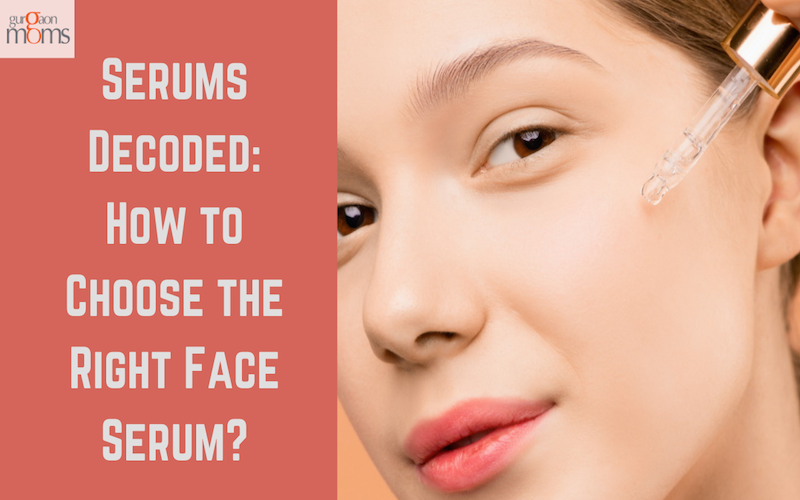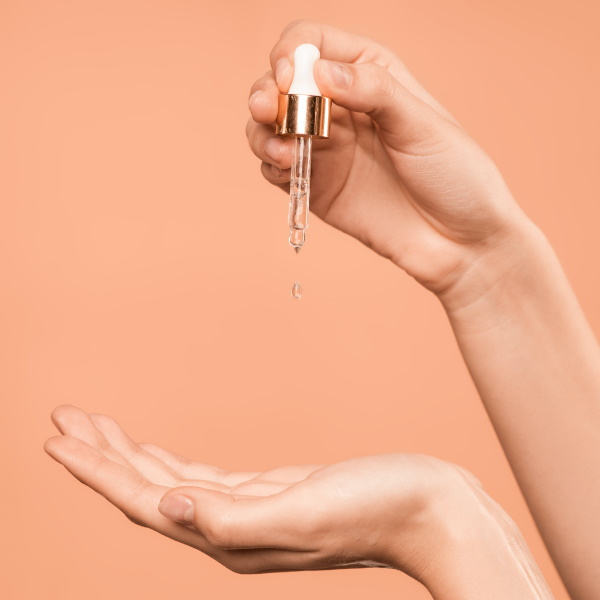The world of skincare offers a diverse range of products to choose from and the options can be overwhelming. More so with new product categories for which only limited information is available. One such category is ‘Serums’. Here is some information to help you understand this most talked about skincare product.
WHAT ARE SERUMS
Serums are skincare products designed to deliver high concentrations of specific high-performance ingredients and nutrients to the skin. With their lightweight texture and small molecular structure, they penetrate deep into the skin to deposit powerful actives like peptides, antioxidant-rich vitamins, glycolic acids, etc in the deeper layers of skin for more targeted results. No wonder they are a vital step in every skincare routine.
Are serums moisturizers?
This is a question I am asked most frequently. The answer is yes, and no. Some serums may be full of ingredients that provide deep hydration to the skin. However, these serums cannot replace moisturizers as moisturizers create a barrier on top of the skin to seal in the actives and help skin retain moisture. So, layering a serum with a moisturizer is an important step.
WHAT ARE THE DIFFERENT TYPES OF SERUMS
Serums typically may be categorized as
- Water-based (Gel or Liquid or Emulsion or Bi-phase) serums and
- Oil-based serums (Facial Oils or Pressed Serums)
Water-based serums may be thin watery liquids, fluid gels, or in the form of creamy lotion-like emulsions. Oil-based serums are waterless formulations of light oil blends or made with oils, butters, and waxes into a semi-solid balm-like consistency.
All of these are designed to deliver actives to the skin but in different ways. Each has its advantages and can be used separately or layered to work together. The fundamental difference between an oil-based serum and a water-based serum is in the high-performance ingredients it contains.
WHICH FUNCTIONS DO SERUMS PERFORM
Depending on the ingredients, serums may perform different functions like anti-aging, soothing & calming, moisture-boosting, firming & toning, nourishing, skin-brightening, repairing, rejuvenating, resurfacing/exfoliating, oil-balancing, anti-pollution, and more.
HOW TO CHOOSE A SERUM
The choice of serum ideally should be made based on skin type and skin concern.
Choosing Serums by Skin Type:
Oily or acne-prone skin will benefit from serums containing Vitamin C (increases collagen production, enhances skin’s repair process and reduces inflammation), retinol (also an antioxidant, reduces inflammation), zinc (soothes irritation, regulates oil production), and salicylic acid (unclogs pores).
Dry skin needs hydration and rejuvenation. Therefore serums with vitamin E (an antioxidant, protects cells from oxidative damage), niacinamide (improves skin elasticity, increases ceramide levels in the skin), glycolic acid (gently exfoliates and lightens discolouration), and hyaluronic acid (retains moisture) will be beneficial.
Mature and dull skin would improve with serums formulated with antioxidants like green tea extract, resveratrol, ferulic acid, etc which combat free radicals, increase the effectiveness of sunscreen by day, and promote cellular repair and healing by night.
Choosing Serums by Common Skin Concerns:
Anti-Ageing Serums
These serums help slow down the ageing process by delivering essential anti-ageing actives to combat fine lines and wrinkles and delay signs of ageing. These are beneficial for all skin types, not just mature skin, and one can start using them as early as in one’s 20s. Retinol, caffeine, green tea, and hyaluronic acid (generally labelled as sodium hyaluronate) are the ingredients to look for.
Antioxidant Serums
These serums help protect skin from free radicals one is exposed to. Free radicals are unstable molecules that damage cells and cause premature ageing. Since all of us are exposed to free radicals on a regular basis, antioxidant serums are ideal for all skin types. They also aid in the prevention of fine lines and other visible signs of ageing and can heal and repair skin. Ingredients to look for would be vitamins A, C and E, resveratrol, niacinamide and coenzyme Q10.
Hydrating Serums
Much like the name suggests, hydrating serums help infuse skin with extra moisture. Those with dry skin are ideal candidates for a hydrating serum, but oddly enough, oily skin types (and even acne-prone skin) may also benefit from some targeted hydration to balance the excess sebum production which causes the skin to become oily in the first place. Both mature and young skin alike would benefit from a hydrating serum. Ingredients to look for would be hyaluronic acid, hydrolysed proteins, glycerine etc.
Colour-correcting and Skin Resurfacing/Exfoliating Serums
These serums perform an array of functions and can target skin issues like hyperpigmentation, enlarged pores and fine lines. Those looking to even out skin tone or lighten dark spots and brighten skin may opt for these serums. Look for ingredients like AHAs, BHAs, vitamin C, arbutin, kojic acid, azelaic acid, L-ascorbic acid and glycolic acid.
Also Read Basic Bras Every Women Should Have
HOW TO USE SERUMS?
With serums, less is more. A couple of drops to a pea-size amount of serum is enough for face & décolletage. They can be applied in the morning or evening or twice a day.
For the most effective results always apply them on clean skin to optimize absorption. Ideally, they should be applied after cleansing and toning the face. Lightly tap or press the serum into your skin and wait until it is absorbed to proceed with the application of a moisturizer.
Everyone’s skin is different. Typically, it may take six to seven weeks for the results of a new serum routine to start showing. Good things come to those who are patient!
A word of caution: Because serums are super potent, more is not always better. Powerful ingredients may irritate sensitive skin. Always patch test before first use.
Some actives found commonly in water-based serums, like peptides, retinol, ceramides, hydroxy acids are synthetic ingredients and may cause skin irritation. For those looking for natural solutions, it is best to opt for Oil-based Serums which contain antioxidants, lipids, and other natural actives
 This article has been authored by
This article has been authored by
Sonia Sharma-Certified Organic Skincare Formulator (UK)
Certified High-Performance Serum Formulator (UK)
Founder of Brand Nature Bathing
About the Author and the Brand
Sonia Sharma is a certified organic skincare formulator with a specialization in high-performance serum formulation and organic anti-aging skincare. Nature Bathing was born out of her fascination and passion for creating natural alternatives to conventional skincare products and is founded on her vision of a simpler, cleaner, more natural approach to skincare. She personally handcrafts natural skin care products in small batches from her home studio. Each product is formulated after extensive research to include carefully selected ingredients for maximum benefit to the skin. Her endeavor is to be able to change how consumers think about skincare and ultimately make them realize that skincare need not be complex. Whatever one needs for healthy skin is available in nature’s lap. She believes that beauty comes from the inside as well as the outside. A healthy diet & lifestyle go hand in hand with a good skincare regime to nourish and rejuvenate from within and without to show visible results. To know more, visit https://www.naturebathing.in/






